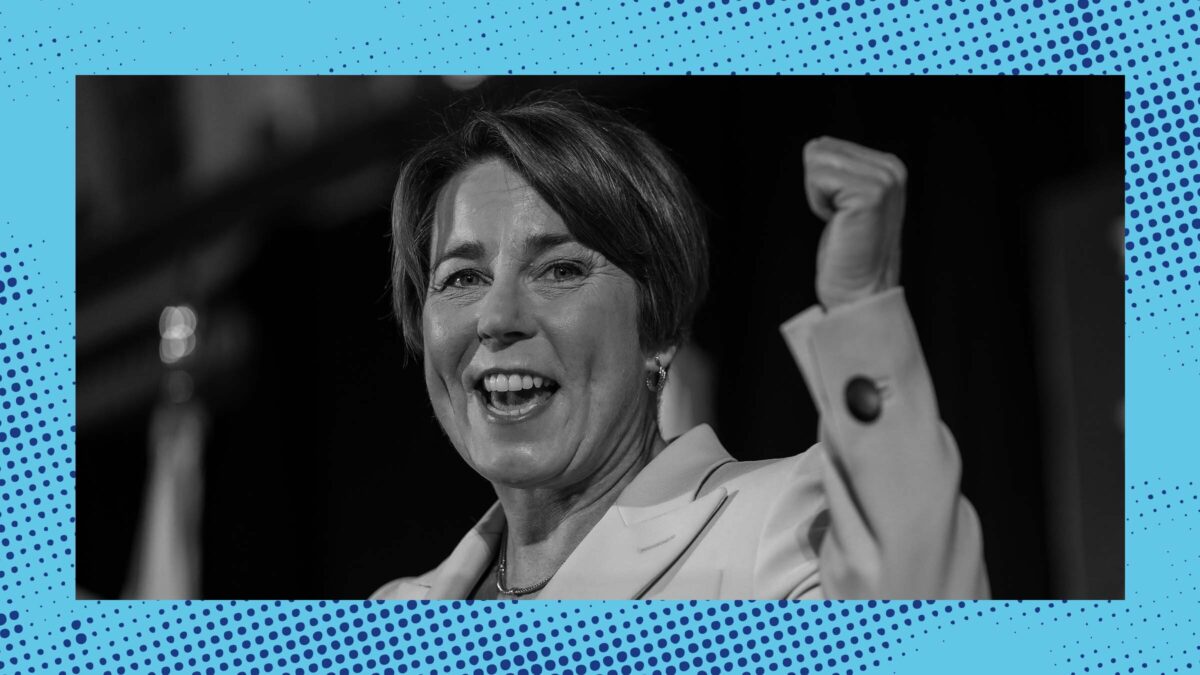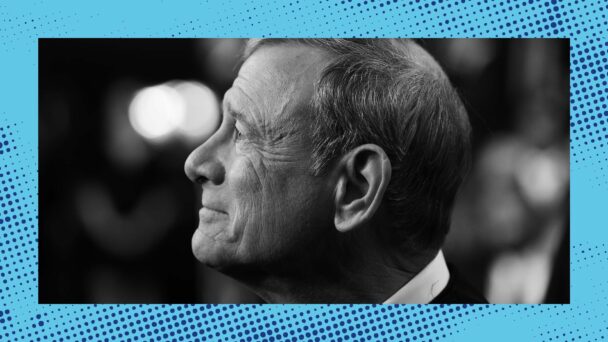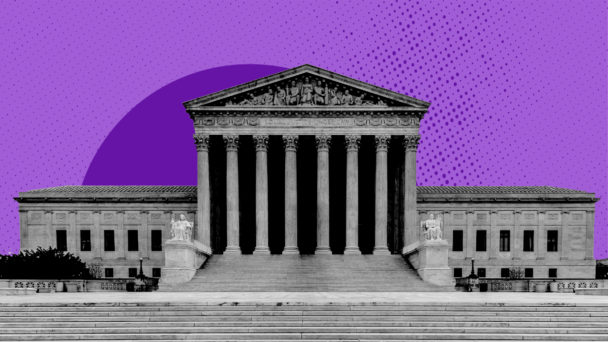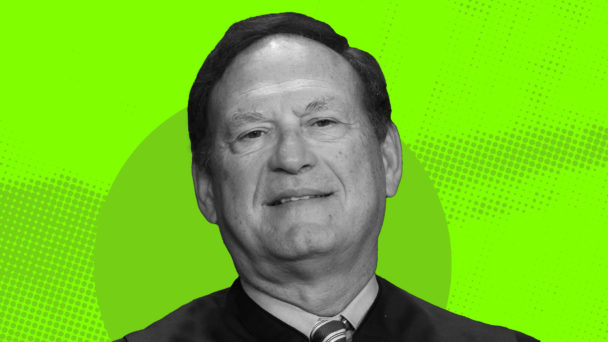On February 7, Massachusetts Governor Maura Healey announced the nomination of Gabrielle Wolohojian, a judge on the state’s intermediate court of appeals, to the Supreme Judicial Court, Massachusetts’s highest judicial body. In her statement, Healey praised Wolohojian’s “exceptional understanding of the law” and noted her “strong commitment” to justice. “There is no one more qualified or better prepared to serve on the Supreme Judicial Court,” she said.
What the governor’s statement failed to mention is that Wolohojian is her former romantic partner of 12 years. It wasn’t until reporters asked Healey about the relationship that she acknowledged it, suggesting that her personal connection to Wolohojian actually made her more confident in the pick: “Of course I had a personal relationship with Judge Wolohojian for many years, so I happen to also know something about her character, integrity and the kind of person she is,” Healey said. At the same time, the governor suggested that anybody questioning the propriety of promoting her ex implicitly threatened the commission of justice. “I don’t want the fact that she had a personal relationship with me to deprive the commonwealth of a person who’s most qualified for the position,” Healey argued.
Despite Healey’s insistence that, actually, nominating her former girlfriend to the most important court in the state is a good thing, the decision has raised eyebrows. The Boston Globe editorial board, for example, wrote that “it beggars belief to imagine that the judge has no ‘personal bias,’ positively or negatively, toward her ex—who is arguably a party in all manner of lawsuits involving state government.” Progressives, however, including those within the legal community, have largely been silent on the nomination. The Governor’s Council (the elected body responsible for approving judicial nominations in Massachusetts) is set to consider the nomination on February 21. If, as expected, they vote to confirm Wolohojian, it will send a clear message that the judicial nominations process isn’t actually about elevating the person most likely to advance justice, but about advancing those who serve corporate power and know the right people.
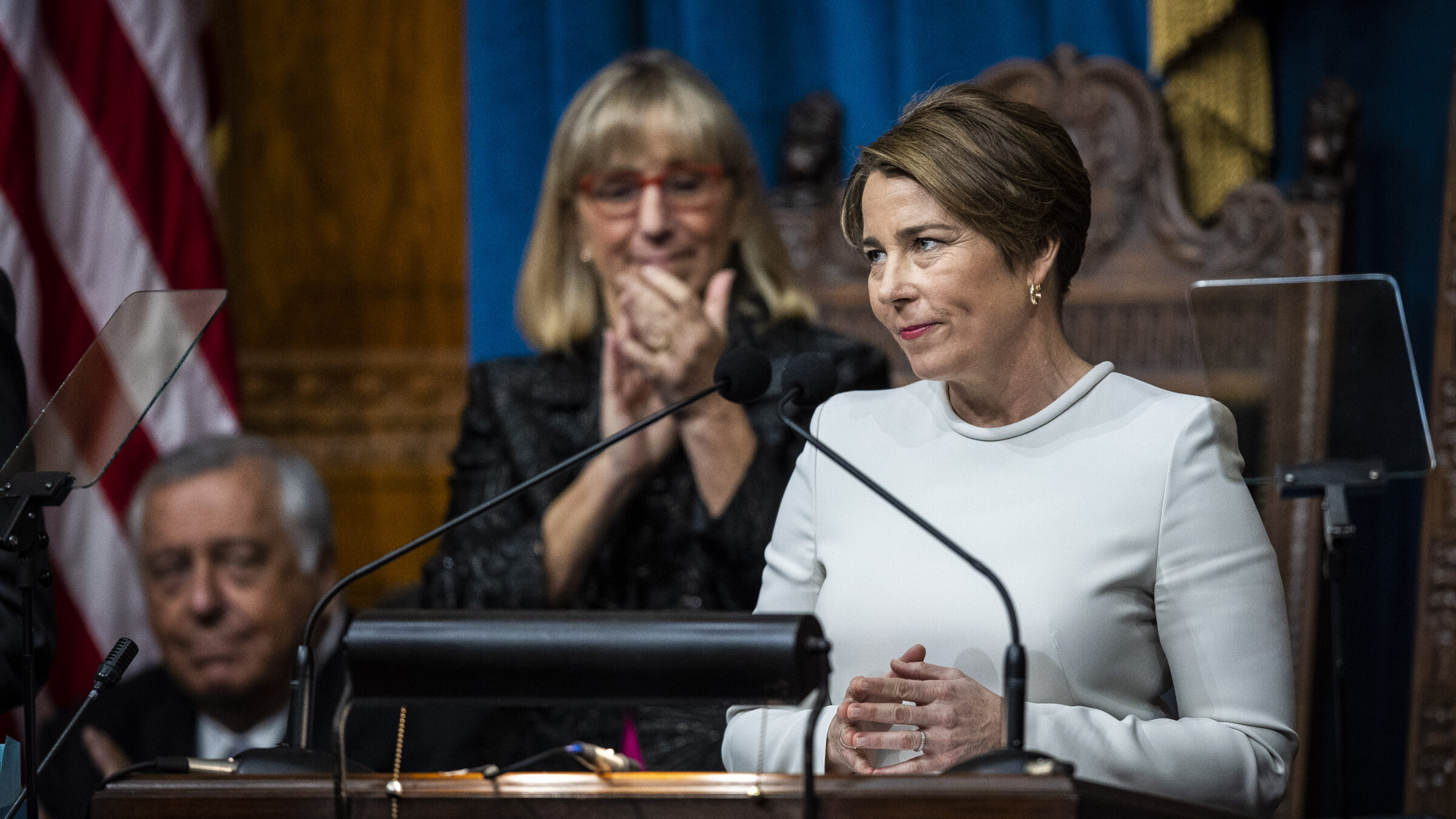
Healey speaks at her inauguration, January 2023 (Photo by Erin Clark/The Boston Globe via Getty Images)
A review of her biography suggests that Wolohojian meets the basic qualifications required to serve on the Massachusetts Supreme Judicial Court. After graduating from Columbia Law and doing a series of federal clerkships, she joined the law firm that is now WilmerHale, ultimately becoming a litigation partner. She was then appointed to the bench in 2007 by Governor Deval Patrick.
Under ordinary circumstances, this might be an unremarkable—if uninspired—nomination. But given her personal ties to the governor, Wolohojian’s nomination raises two key questions: First, can the public be sure that her selection was made free of considerations other than merit? And, second, if she is confirmed by the Governor’s Council, will she serve in the role without bias toward the person who appointed her, or will there be an ongoing risk that her decision-making is clouded by favoritism and partiality?
One way that the first question might be answered is by looking at who else applied for the position, or who else—if anyone—was recommended to Healey by the Supreme Judicial Court Nominating Commission. That body, set up by Healey in September, is composed of five members selected by Healey herself, and included her chief of staff and chief legal counsel; as the Globe described it, it was an “insider arrangement that from the start says ‘outsiders need not apply.’” The lack of transparency here means that looking at the other candidates who applied isn’t an option. Healey declined to shed any further light after announcing Wolohojian’s nomination, stating that she wasn’t “going to get into how we engage with the Judicial Nominating Committee.”
Absent publicly accessible information about the process, one might ask whether there is any objective criteria by which Wolohojian is, as Healey put it, the “person who’s most qualified for the position” in the commonwealth of Massachusetts. In a state with tens of thousands of lawyers and hundreds of sitting judges, the question is somewhat silly: Of course there’s no single, objectively most qualified individual for the position. Giving some grace for fun rhetorical flourishes, then, the better question might be, “Is Wolohojian a particularly good nominee for the Supreme Judicial Court?”
The answer to this question depends on what it means to be a “good” nominee in the first place. At WilmerHale, Wolohojian devoted her career to working on behalf of clients like Wyeth, a pharmaceutical company known for selling diet drugs that caused significant damage to users’ heart and lungs. She represented Wyeth in over 2600 diet-drug-related liability cases, protecting the bottom line of a pharmaceutical company that stood accused of actively harming thousands of consumers. This is pretty standard work for corporate defense attorneys, yes, but there’s a growing body of evidence to suggest that it’s not a professional background that makes for a particularly good judicial nominee: Former corporate attorneys are more likely to side against workers, renters, and the criminally accused when they’re on the bench, which makes it a big problem that they’re far more likely than their public-interest counterparts to be elevated to judgeships. Wolohojian’s background is already overrepresented on the bench, and is hardly reassuring for those who think that the law should generally work for working people.
Since leaving private practice, she’s presided over thousands of cases, giving her time to separate herself from her pro-corporate past if she so chose. But Wolohojian’s career fails to demonstrate a commitment to using the law to advance justice for working people. In one recent decision, Wolohojian joined an opinion ruling that Carlos Lopez Rivera, who was suing his doctor for medical malpractice following eye surgery, was bound by a forced arbitration clause and could not bring his suit in court—despite the fact that Lopez, who spoke only Spanish, could not read the arbitration clause he’d been forced to sign. A lower court found that the clause was unenforceable because “Lopez lacked a sufficient understanding of English to know what he was signing.” But on appeal, Wolohojian and her colleagues reversed, ruling that although Lopez “had reasonable notice of the terms of the agreement and manifested his assent.”
Lopez’s case was decided by a three-judge panel, which means Wolohojian had plenty of room to dissent, if she so chose. The fact that it overturned a lower court decision means she would have had ample legal support for doing so. Yet she seems to have had no problem concluding that Lopez received “reasonable notice” of his legal rights in a language he did not speak. Results like this are apparently what a “strong commitment to the administration of justice” looks like in Maura Healey’s opinion.
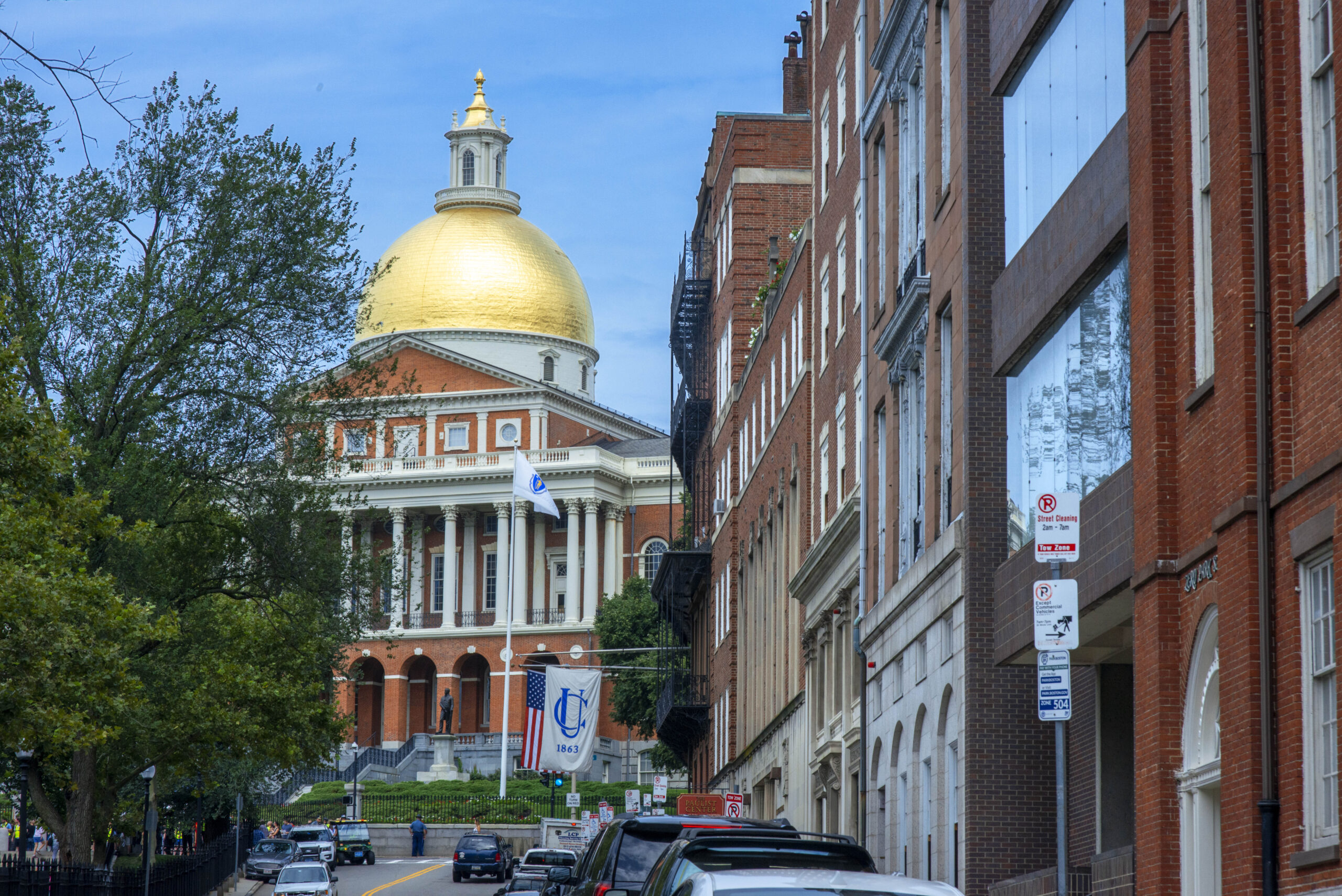
(Photo by: Sergi Reboredo/VW Pics/Universal Images Group via Getty Images)
A pro-corporate professional background and pro-arbitration rulings on the bench are, unfortunately, not considered disqualifying for a judicial promotion. But again, Healey isn’t arguing just that Wolohojian is “qualified” for the bench—she claimed that Wolohojian is uniquely qualified, the most qualified person in the commonwealth for this position, and that the public would be actively missing out on a societal benefit should she not be nominated. But Wolohojian’s record suggests that she would be far from unique on the Massachusetts Supreme Judicial Court, on which every single sitting justice has worked as either a corporate attorney or a prosecutor. She would not bring sorely needed perspective to the bench in the way that a workers’ rights attorney, public defender, or civil rights champion would. Even setting aside the questions about her personal relationship with Maura Healey, as a nominee, Wolohojian is, at best, adequate.
As for Wolohojian’s ability to operate free of favoritism or partiality, according to Healey, there are no concerns, and Wolohojian will rule on cases involving the Healey administration just like any other justice. Yet according to the American Bar Association’s 2019 guidance, when a judge has a “close personal relationship” to involved parties, recusal may be appropriate—and a “close personal relationship” explicitly includes having had “past romantic or intimate involvement.”
Wolohojian has clearly recognized, at least at times, that it would be improper to participate in cases involving Healey; when Healey was attorney general, Wolohojian recused herself from all cases involving that office, even after the two separated. However, it appears that whatever principle was applied at that time no longer applies, as Wolohojian now rules on cases involving the executive branch, and appears to intend to continue to do so as a justice on the Supreme Judicial Court. Should Wolohojian be confirmed, the question of whether or not she should recuse will become a largely theoretical one, since the decision is at the individual justice’s discretion. As we’ve seen over and over, expecting justices to make the right decision in cases where they should recuse is a fool’s game. If the Governor’s Council knowingly confirms a justice with clear conflicts of interest and a spotty-at-best record of engaging with the necessity of recusal, it is setting the stage for significant trouble to come.
Filling the judiciary with corporate attorneys and prosecutors has been done before. So has doling out important political positions to friends and close relations. But neither method of doing business inspires much confidence in the integrity of the legal system, or serves the people who depend on it for justice. These interests should be a priority for any governor; by nominating Wolohojian, Healey is ignoring them.
